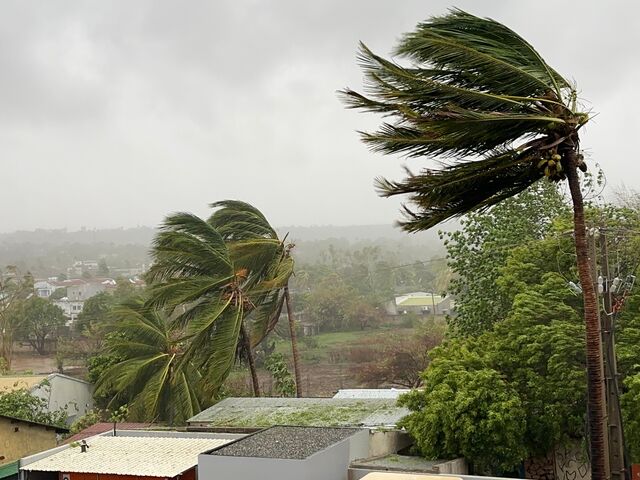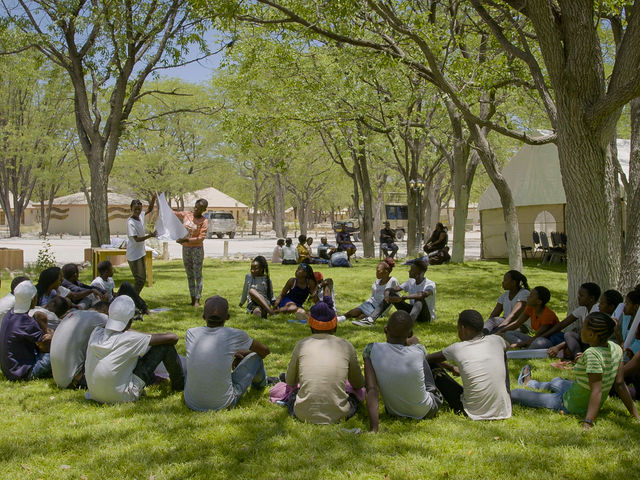Empowering Girls Means Upholding Their Rights to Sexual and Reproductive Health
Joint Statement on International Day of the Girl (11 October), by Eastern and Southern Africa Regional Directors: Anne Githuku-Shongwe, UNAIDS; Lydia Zigomo, UNFPA and Etleva Kadilli, UNICEF and Dr Moeti Matshidiso, WHO Africa.
Girls’ vision for the future, this year’s theme, conveys both the need for urgent action and persistent hope, driven by the power of girls’ voices and vision for the future. Girls around the world tell us they know progress is possible. After all, the world has more than halved child mortality since the 1990’s. Fifty million more girls are in school than in 2015.
To help empower girls with knowledge and agency in their sexual and reproductive health and rights, 2gether 4 SRHR is a Joint United Nations Regional Programme, delivered as one by UNFPA, UNAIDS, UNICEF, and WHO in partnership with Sweden. The programme supports governments across the region to track and improve SRHR trends, review and promote supportive laws, improve funding and implement responsive programmes. This is how we create an environment where SRHR is prioritised for adolescent girls and women.
For example, in 2022, the United Republic of Tanzania lifted a ban which previously stopped girls who had given birth from returning to school. Since the inception of the programme, ten national laws have been reviewed or passed across the region, promoting the expansion of SRHR for young people and protection from gender-based violence, with increased prosecution of perpetrators of violence.
Evidence from our 2gether 4 SRHR programme shows that peer mentoring initiatives combined with youth friendly health services are impactful. We see promising outcomes when we address health care worker values and attitudes, equip them with skills to provide a full package of services, and complement this with peers who provide psychosocial support and facilitated referrals. These positive results are not only in increasing HIV testing and treatment and reducing transmission rates, but also in reducing gender-based violence, enhancing parenting, increasing contraceptive use, and improving mental health.
Young women’s mentoring of others during hardship is not only improving this demographic’s health and wellbeing, but it’s also creating jobs. Mentoring networks for adolescents and young mothers in particular are being scaled up nationally in Zimbabwe, and South Africa, among other countries., among other countries.
The UNITED! Movement brings together youth networks advocating for HIV and SRHR into one voice. UNITED! Member, Jerop Limo, 25, an adolescent youth advocate, told us recently “Maybe you used to be young, but actually our experiences are quite different. Young people are much more likely to take the advice of a peer” and she’s right.
The design of sexual and reproductive health services should be co-created with adolescent girls, building on their experiences, since they are most at risk of HIV, child pregnancy and maternal health complications. Health services need to be private, non-judgmental, and available in spaces where girls congregate. Many youth led networks are now advising the United Nations and Health Ministries on how best to engage young people in health-seeking behaviour.
But for progress to continue, we must address the fact that deeply entrenched social, religious, and cultural norms often reinforce patriarchal values. These values frame gender and sexuality in ways that perpetuate and legitimise inequalities, denying women and girls their rights. Difficult conversations need to be undertaken with custodians of culture and traditions, including religious and traditional leaders, to address harmful social cultural norms.
In Eastern and Southern Africa, girls’ transition to adulthood is often severely disrupted by HIV, early unintended pregnancy, and gender-based violence, with little social support or access to respectful health services. Despite progress, girls are still denied their sexual and reproductive health and rights (SRHR). Today’s generation of girls is disproportionately affected by global crises of climate change, conflict, poverty and pushback on hard-won gains for human rights and gender equality. Too many girls are still denied their rights, restricting their choices and limiting their futures.
In this region, one in five girls become pregnant before the age of 20. Eastern and Southern Africa is also an epicentre of the HIV crisis, where girls (aged 15-19) are six times as likely to acquire HIV as their male counterparts. For girls who drop out of school because of pregnancy, less than five per cent return, meaning pregnancy severely limits girls’ opportunities to learn and gain employable skills.
Despite the silence surrounding SRHR in some communities across the region, many parents want to provide their children with sexuality education, they just don’t know where to start. Empowering young people and parents is about equipping them with information and skills. 2gether 4 SRHR is working with young people on tools to support both adolescent girls and their caregivers.
World leaders have recently signed a global pact for the future, committing to dismantle gender inequality. Enacting this promise requires us to listen, engage, and respond to the needs of today’s generation of girls, in all their diversity, who are already leading change in myriad ways. Africa has the fastest growing youth population in the world. With the right support, resources, and opportunities, we have a seismic opportunity to address inequality in sexual and reproductive health and rights now, and empower girls for decades to come, and for the next generation.
On this International Day of the Girl Child, we call on countries to support laws and policies that enable girls, including those who are mothers, to continue their education, receive respectful sexual and reproductive health care, and fully engage in national development.

